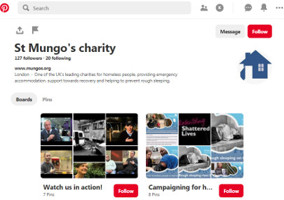Are you ready to prove your charity is the best legacy investment for today’s legacy prospects? Because – in my experience – that’s what prospects are looking for. They want to know that your charity is the best investment they can make. And savvy baby boomers are indeed wise will-makers.
What’s changed?
Excuse my nostalgia, but 30 years ago when I entered the world of legacies, it all seemed fairly simple. 83 per cent of legators were female and most of those were single. It was a time when trust and confidence in the charity sector was taken for granted and a will was a natural act for those who lived alone without a family.
In those days, about 10-15 per cent of donors I met in focus groups had included a charity in their will. Now it is 38-68 per cent (depending on the type of charity and its legacy prospects). There is not so much of a gender bias, with around 60 per cent of legators being female and 40 per cent male.
Re-marriages have risen by around 50 per cent for those in retirement over the past decade alone. And because of that, retirees are increasingly writing or re-writing their will, making or reviewing their legacy giving.
But BBCs (baby boomer couples) are often found watching charities and waiting. Why? Because trust and confidence in charities is so low and legators need reassurance that their hard-earned money will be well used.
Rekindling the fire
2000 years ago, Plutarch the Greek Essayist said: “The mind is not a vessel to be filled, but a fire to be kindled”.
Never was a truer word said of today’s legacy prospect.
We need to rekindle their fire by proving our charity is the worthy recipient of a legacy.
Prospects, and their legacy decision-making process, have changed beyond belief. But are you reflecting this in your legacy programme?
If you’re still sending outdated legacy direct mail packs, your legacy webpages are hard to find (or non-existent) and your communications lead on how to make a will or gives complicated explanations of tax advantages, rather than communicating impact and why a legacy gift really matters, then it’s unlikely to float their boat. Where is the kindling to ignite their passion?
What baby boomers really care about
Lifestyles for baby boomers are often misunderstood. With so much talk about their inherited wealth, many fail to understand that there are so many other financial pressures. Baby boomers tend to be worried about rising care costs, university fees and getting their children or grandchildren on the property ladder let alone the stability of their lives and their family’s lives.
Research from universities across the world demonstrates that as we age, we become wiser and we think more deeply about every financial decision. To quote The Journal of Neuropsychiatry and Clinical Neurosciences – Harvard University: “Decision-making (in older people) is a complex executive function that draws on past experience, present goals, and anticipation of outcome, and which is influenced by prevailing and predicted emotional tone.”
Today’s legacy prospects take a long time to consider their future investment, which is based on evidence of need for all family members and charities. While baby boomers will turn to the causes they relate most closely to, their magnifying glass examines the charity’s performance, costs and impact to determine if this is an investment they can believe in?
Do you put these at the forefront of your communications on your website, at events and in direct mail? Let alone on Facebook and in newsletters? Life in retirement is increasingly busy so this is what they really need from you.
In my focus groups, older people tell me that they start thinking about their will in their late 50s but that it is only finalised 5-10 years later when the needs of their fragile family, tax savings, retirement plans and trusted charities are all agreed.
Legacy prospects have changed from being almost spontaneous to deeply thoughtful. Have you?
Richard Radcliffe is a legacy fundraising consultant
More Remember A Charity Week articles











